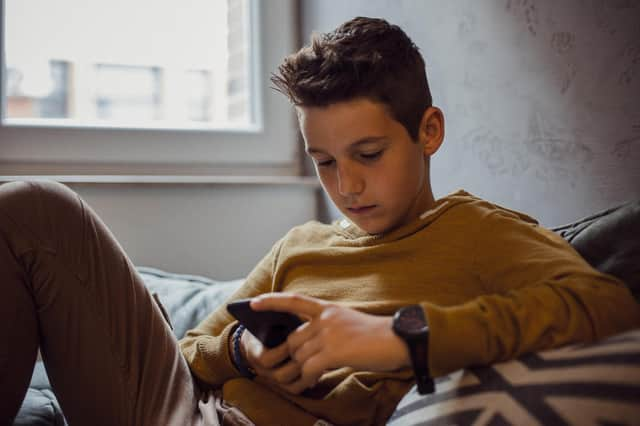Mobile phones: I'm Gen Z and every day I see the negative impact of us overusing socials and screens


The government has decided to support headteachers in their attempts to prohibit usage of mobile phones in school, launching ‘’further crackdowns’’ on this issue. Education Secretary Gillian Keegan says it's important to take these steps because phones are an ‘’unwanted distraction in the classroom.’’ I must admit, I’m one of the few members of Gen Z that actually support this measure, and believe they should have done it sooner, like in France and the Netherlands.
As someone who attended a school with a strict ban on mobile phones, I found it refreshing to have conversations with people without incessant notifications going off, and without people trying to listen to you whilst texting - which we all think we can do but can’t. Moving to a Sixth Form where phones are allowed has been an eye-opener, highlighting just how attached people are to their phones and social media. Looking around, I see a vast majority glued to their phones at lunch and break, not socialising at all with friends. Perhaps the consequences of this technology addiction are indeed something much deeper and concerning than something that simply affects school work.
Advertisement
Hide AdAdvertisement
Hide AdConsistent and excessive use of mobile phones in young people can really hinder their social and communication skills. Many young people are ‘scared’ to have conversations when they’re not hiding behind a screen: they’re reluctant to call people, nervous meeting new people and definitely hate eye contact in conversations. This can be particularly damaging for children who are given phones too early, as they are brought up believing this consistent texting is the norm.
Living this quasi-isolated life dominated with texting and messaging makes day-to-day interactions more difficult for young people. For example, when queuing for a coffee, or waiting for a bus, we idly scroll on our phones rather than striking up a conversation with someone (which is probably something adults are guilty of too). On a more saddening level, a TikTok video went viral, of a granddaughter ignoring her grandad over lunch, and instead was texting on her phone.
So, phones heighten anti-social behaviour and prevent young people, in particular, from taking in the world around them, whether that’s nature, smiles from passers-by or the company of their own friends and family. The novel The Machine Stops by E.M Forster envisages a perfect magnification of this issue, where technology essentially takes over and is the only way people can communicate.
On another note, increased technology usage can also lower young people’s attention span significantly, and it seems as though it’s getting worse with YouTube Shorts, TikTok’ and ‘skip ad’ features which allow people to get instant gratification. This will undoubtedly have effects on concentration and patience when studying both at home and in lessons. Mobile apps have even been created to help students study without getting distracted on their phones, for example, Forest, where your ‘tree dies’ if you leave the app to check another. Isn’t this concerning that apps such as these have to be created in the first place?
It’s definitely a difficult issue to solve and banning phones in schools will only touch the surface. However it’s a step forward, and will hopefully reduce my Gen Z’s attachment to phones.
Comment Guidelines
National World encourages reader discussion on our stories. User feedback, insights and back-and-forth exchanges add a rich layer of context to reporting. Please review our Community Guidelines before commenting.
